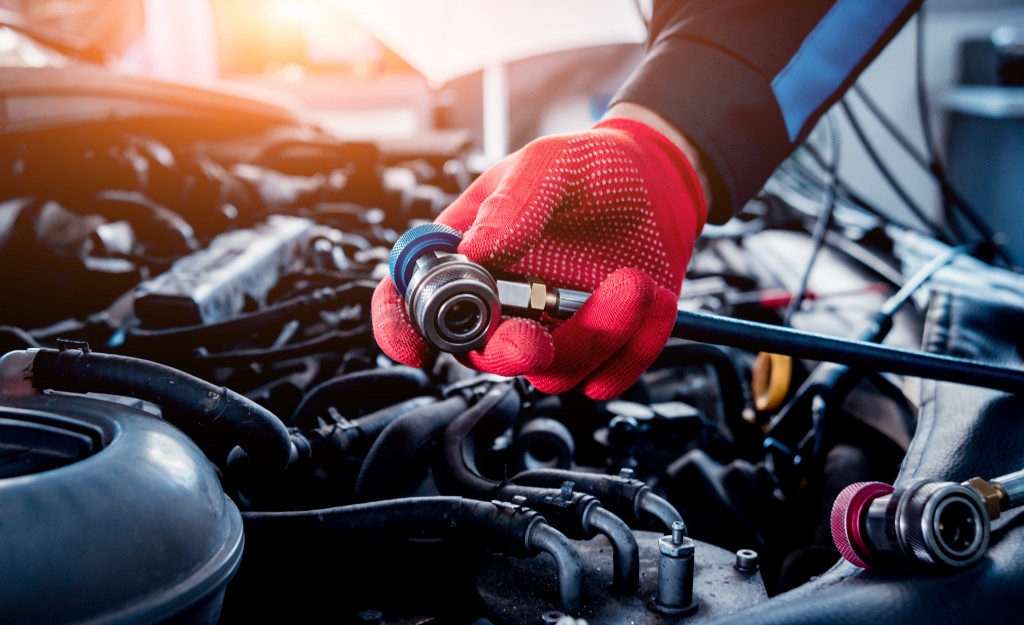On average, a new car will cost the owner around $1,186 annually in routine repairs and maintenance, an American Automobile Association (AAA) study revealed. This figure could, of course, go higher depending on how old the automobile is and how the owner takes care of the vehicle.
While today’s batch of cars is built to last (an average of 200,000 miles for standard cars and 300,000 for electric vehicles or EVs) with modern technology, it’s not an assurance that the brand-new ride you’ve bought now would really last that long. How you drive and follow manufacturer-recommended maintenance would factor heavily in the eventual lifespan of your vehicle.
If you want to enjoy years of great service from your car without incurring huge costs in the process, here are five simple and inexpensive ways to prolong its life and maintain its flawless beauty:
Pamper it through periodic detailing
What can a car detailing do that a regular car wash cannot? There are plenty, it turns out.
For one, regular visits to your local auto detailing shop would ensure that your car would get a pampering fit for a king or queen.
Detailing involves giving both the outside and the inside a thorough and careful cleaning, thus ensuring that the vehicle looks great and is cleaned in every spot. Your car would also get special protection such as carnauba wax for the paint and shampoo for the carpets to remove deep-seated dirt that could lead to premature wear.
There’s no hard and fast rule as to the frequency of having a car detailed but for a start, have your car detailed at least once every quarter. And, in light of the current pandemic, you may also have your car disinfected since some auto detailing shops do offer such a specialized service in response to the COVID-19 situation.
Always park your car in a shaded area/garage
While parking in open spaces would be inevitable, it doesn’t mean that it has to always be the case. If possible, always choose to park your car in a shaded area when you’re going outside.
Meanwhile, you should always safeguard your car inside your garage when you’re at home. If you don’t have a proper garage, buying a movable tent should easily do the trick.
Keeping your car out of the sun’s way would help prolong the paint’s excellent condition and also protect the cabin. Plus, you won’t have to spend extra minutes trying to cool the cabin each time, which squanders time and gas (if you love to use the A/C to achieve your desired cabin temperature).
Change/top-up your fluids regularly
Your car has plenty of mechanical parts that require lubricants to perform optimally and avoid costly damages.
There’s a reason why owner’s manuals have recommended frequency or interval of oil or coolant change and it’s because of these. As such, you need to religiously change or top-up your car’s fluids so the parts that need them would not need to work harder than normal just to function at optimum levels.
If you think that a trip to the mechanic is costly for your scheduled engine oil change, just wait until your engine bogs down due to neglect. You might have tears rolling down your cheeks once you see the bill you have to settle for an engine overhaul caused by an infrequent oil change.
Mind your driving habit

Do you love to go full speed from a dead stop or hit the gas hard without the engine having properly warmed up first? If so, then say goodbye to that illusion of enjoying years of service from your car.
As mentioned, a car owner’s driving habit is one critical factor that would determine whether the car would last many years still running like new. An aggressive driving habit almost always causes premature wear on the car’s engine and other mechanical systems, while a responsible driving manner prolongs the car’s life.
So, which kind of driver are you and which do you intend to be for the years ahead? Your answers would determine how long you’ll get great service from your vehicle.
Monitor your tire pressure and tire condition
Under-inflated tires would consume more gas and make the car work harder or handle poorly. Meanwhile, over-inflated and worn tires would be bumpy and prone to blowouts. Either of these scenarios is not something you should wish for if you want your car to last long or if you don’t want to compromise your safety.
You should, therefore, make sure to always check your tire pressure if your car is not equipped with automatic tire pressure sensors. There are manual tire pressure gauges that you can buy for a few dollars, so this should be a non-issue.
Just make sure that all the tires are properly inflated and replaced if the treads are already worn or have reached the manufacturer-recommended depth for replacement. Follow all these simple tricks and your car should last for a long time.

